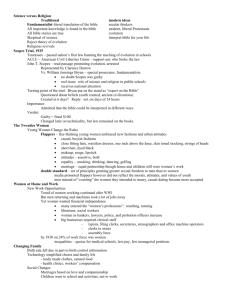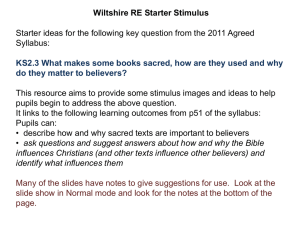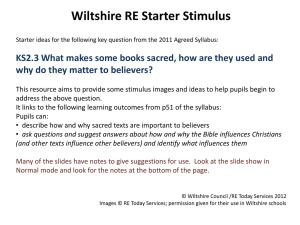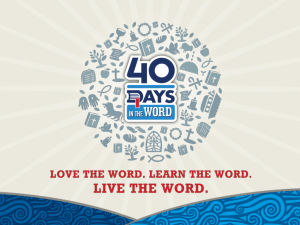Yr 3&4 What makes some books sacred?
advertisement
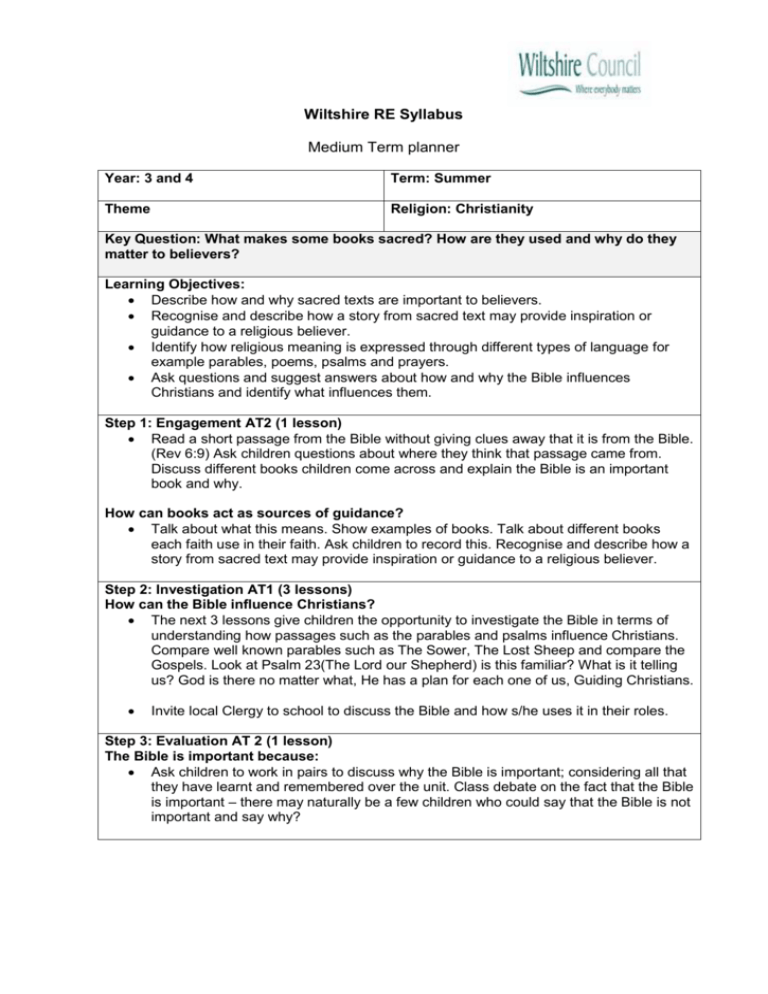
Wiltshire RE Syllabus Medium Term planner Year: 3 and 4 Term: Summer Theme Religion: Christianity Key Question: What makes some books sacred? How are they used and why do they matter to believers? Learning Objectives: Describe how and why sacred texts are important to believers. Recognise and describe how a story from sacred text may provide inspiration or guidance to a religious believer. Identify how religious meaning is expressed through different types of language for example parables, poems, psalms and prayers. Ask questions and suggest answers about how and why the Bible influences Christians and identify what influences them. Step 1: Engagement AT2 (1 lesson) Read a short passage from the Bible without giving clues away that it is from the Bible. (Rev 6:9) Ask children questions about where they think that passage came from. Discuss different books children come across and explain the Bible is an important book and why. How can books act as sources of guidance? Talk about what this means. Show examples of books. Talk about different books each faith use in their faith. Ask children to record this. Recognise and describe how a story from sacred text may provide inspiration or guidance to a religious believer. Step 2: Investigation AT1 (3 lessons) How can the Bible influence Christians? The next 3 lessons give children the opportunity to investigate the Bible in terms of understanding how passages such as the parables and psalms influence Christians. Compare well known parables such as The Sower, The Lost Sheep and compare the Gospels. Look at Psalm 23(The Lord our Shepherd) is this familiar? What is it telling us? God is there no matter what, He has a plan for each one of us, Guiding Christians. Invite local Clergy to school to discuss the Bible and how s/he uses it in their roles. Step 3: Evaluation AT 2 (1 lesson) The Bible is important because: Ask children to work in pairs to discuss why the Bible is important; considering all that they have learnt and remembered over the unit. Class debate on the fact that the Bible is important – there may naturally be a few children who could say that the Bible is not important and say why? Step 4 Expression AT 2 (1 lesson) How can we use the Bible in our lives? Children choose a media to express what the Bible means to them (even those children who do not have a faith to express this perhaps by drawing a picture of someone who is a Christian and how they use the Bible – empathising with a Christian; appreciating how the bible is significant to someone else). How could we use the Bible more in the classroom? Share ideas as a circle time activity and create ways of using the Bible more in the future. Evidence: personal explanations, presentations of the importance of the Bible, photos, annotations, speaking and listening records, recordings or photos of children’s expressions, comparison tables, annotated Bible photocopies. Step 1 Engagement Skills: Skills and Attitudes focus in this enquiry Step 2 Step 3 Investigation Evaluation Skills: Skills: Step 4 Expression Skills: Interpretation Investigation Application Analysis Evaluation Creativity Reflection Attitudes: Attitudes: Attitudes: Attitudes: Curiosity Appreciation Critical awareness Open-mindedness Self-awareness AT1 Levelled Learning Outcomes Level 2: use some religious words and phrases to recognise and name features, of religious life and practice can recall religious stories and recognise symbols, and other verbal and visual forms of religious expression. Level 3: use religious words and phrases, to identify some features of religion and its importance for some people, begin to show awareness of similarities in religions retell religious stories, suggest meanings for religious actions and symbols, identify how religion is expressed in different ways. Level 4: use a developing religious vocabulary, to describe some key features of religions, recognising similarities and differences, Make links between beliefs and sources, including religious stories and sacred texts, begin to identify the impact religion has on believers’ lives describe some forms of religious expression. AT2 Levelled Outcomes Level 2: their own experiences and feelings, in relation to religion and belief, what they find interesting or puzzling in relation to religion and belief, what is of value and concern to themselves and to others. Level 3: ask, and respond sensitively to, questions about their own and others’ experiences and feelings, in relation to religion and belief, recognise that some questions cause people to wonder and are difficult to answer in relation to matters of right and wrong, recognise their own values and those of others. Level 4: identify what influences them, making links between aspects of their own and others’ experiences, in relation to religion and belief, ask important questions about religion and beliefs, making links between their own and others’ responses make links between religious and non-religious values and commitments, and their own attitudes and behaviour. Resources: Bible, photocopies of Bible passages, paper for comparison table, camera, art resources, instruments and inspirational music. Teacher Reflection: Author: E Drag


